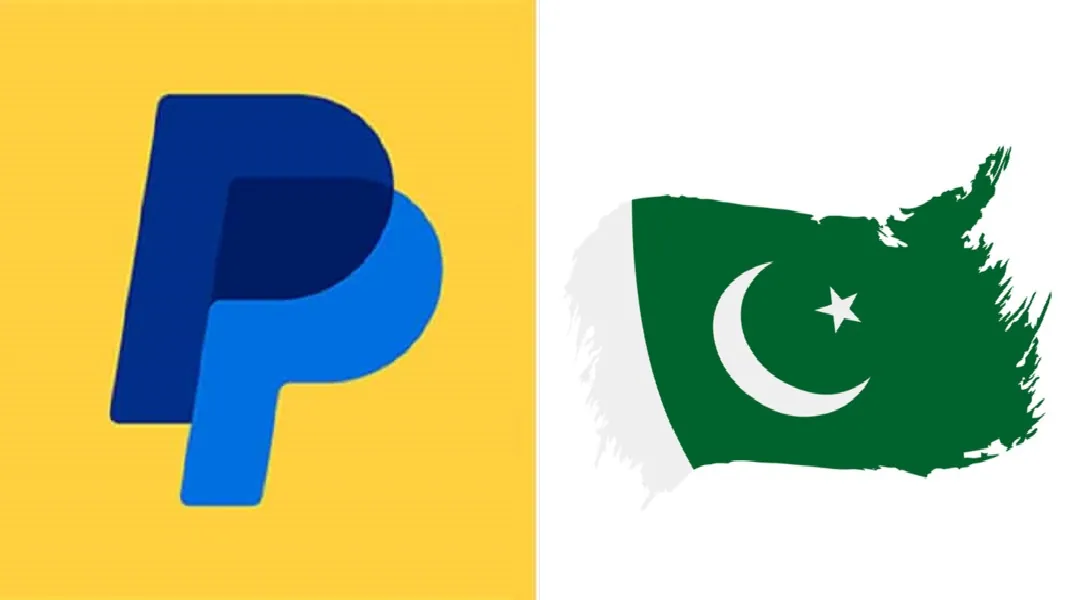The Truth Revealed: PayPal’s Current Status in the Pakistani Market

Discrepancies have emerged regarding the recent announcement by Pakistan’s caretaker IT Minister Umar Saif about PayPal’s indirect entry into the country through a partnership with Payoneer. Contrary to initial impressions, it appears that the collaboration primarily involves integrating PayPal as a payment method for Payoneer users, rather than marking PayPal’s direct foray into Pakistan. This article aims to clarify the intricacies of the partnership and explore the persistent challenges hindering PayPal’s entrance into the Pakistani market.
Partnership Dynamics:
Despite Minister Saif’s assertion, credible sources confirm that the collaboration between PayPal and Payoneer is not synonymous with PayPal establishing operations within Pakistan. The partnership is designed to facilitate Payoneer users globally, allowing them to leverage PayPal as an additional payment option. This strategic alliance is not exclusive to Pakistan but extends across all regions where Payoneer is operational.
Operational Implications:
The practical implications of this partnership become apparent when considering cross-border transactions. For instance, businesses based in countries with access to PayPal can now utilize Payoneer to make payments to freelancers or partners in Pakistan, seamlessly integrating PayPal into their payment methods alongside traditional options.
Persistent Limitations for Pakistani Users:
Despite the collaborative effort, the core limitation remains unchanged for users in Pakistan. The inability to directly create PayPal accounts persists, and this partnership does not alter the existing restrictions. Pakistani individuals cannot open PayPal accounts directly or through Payoneer, maintaining the status quo outlined by PayPal’s geographical limitations.
Ministerial Statements and Potential Ramifications:
The article explores Minister Umar Saif’s attempt to position the partnership as Pakistan-centric. However, such a perspective might inadvertently impact the broader objective of bringing PayPal into the country. A more global perspective on the partnership is crucial, considering the overarching goal of facilitating international transactions for businesses and freelancers.
Addressing Challenges Hindering PayPal’s Entry:
Delving into a comprehensive study by the Pakistan Institute of Development Economics (PIDE), the article sheds light on the multifaceted challenges impeding PayPal’s entry into Pakistan. These challenges include regulatory barriers related to electronic money institutions (EMIs), concerns about money laundering, compliance issues with FATF regulations, and broader issues like exchange control regimes and data privacy.
Conclusion:
In conclusion, the recent partnership between PayPal and Payoneer should be viewed as a step towards enhancing global payment options for Payoneer users rather than a direct entry of PayPal into Pakistan. Understanding the intricate challenges highlighted by the PIDE study is essential for policymakers and industry stakeholders as they navigate the complex landscape of regulatory and compliance issues. While the aspirations for PayPal’s direct presence in Pakistan persist, managing expectations and addressing the underlying challenges are crucial for charting a more realistic and achievable path forward.
Frequently Asked Questions (FAQs) about the PayPal-Payoneer Partnership in Pakistan
Q1: What is the recent PayPal-Payoneer partnership in Pakistan about?
A1: The partnership involves integrating PayPal as a payment method for Payoneer users globally, enabling them to make transactions seamlessly. Contrary to some claims, it does not signify PayPal’s direct entry into Pakistan.
Q2: Can Pakistani users now create a PayPal account through Payoneer?
A2: No, the partnership does not change the fundamental restriction for Pakistani users. Individuals in Pakistan still cannot directly create PayPal accounts. The collaboration allows existing Payoneer users to utilize PayPal as an additional payment method.
Q3: How does the partnership benefit businesses and freelancers in Pakistan?
A3: Businesses in countries with PayPal access can use Payoneer to make payments to freelancers or partners in Pakistan through PayPal. This offers an additional and convenient payment option for cross-border transactions.
Q4: Is the partnership exclusive to Pakistan?
A4: No, the partnership is not exclusive to Pakistan. It extends across all geographies where Payoneer operates, providing a global enhancement to payment options rather than being specific to any one country.
Q5: Can Pakistani users now open a PayPal account indirectly through this partnership?
A5: No, the collaboration does not change the existing restrictions. Pakistani individuals still cannot open PayPal accounts directly or indirectly through Payoneer.
Q6: Why did the IT Minister mention PayPal’s indirect operation in Pakistan?
A6: The minister’s statement may have aimed to emphasize the potential global impact of the partnership. However, framing it as Pakistan-specific might have unintended consequences for the broader goal of bringing PayPal into the country.
Q7: What are the challenges hindering PayPal’s direct entry into Pakistan?
A7: Challenges include regulatory barriers related to electronic money institutions (EMIs), concerns about money laundering, compliance issues with FATF regulations, and broader issues such as exchange control regimes and data privacy.
Q8: Is there a timeline for PayPal’s direct entry into Pakistan?
A8: As of now, there is no confirmed timeline for PayPal’s direct entry into Pakistan. The partnership with Payoneer is a step towards enhancing international payment options for Payoneer users while broader challenges are addressed.
Q9: Are there ongoing efforts to bring PayPal directly to Pakistan?
A9: The IT Minister has expressed previous intentions to bring PayPal and other global payment providers to Pakistan. However, challenges identified in studies, such as those by the Pakistan Institute of Development Economics, need to be addressed for substantial progress.
Q10: How can businesses and freelancers prepare for the potential entry of PayPal into Pakistan?
A10: Stay informed about regulatory developments, industry announcements, and government initiatives. Meanwhile, leverage existing payment options and keep an eye on updates from relevant authorities regarding the integration of global payment services like PayPal.




